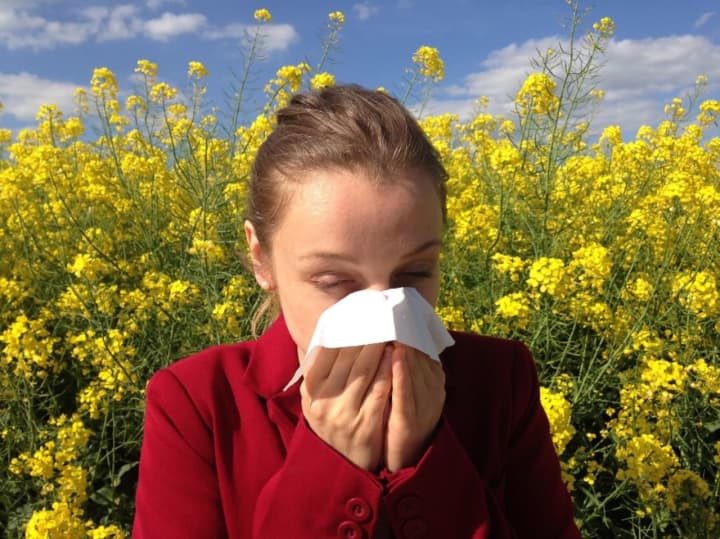Theodore Falk, M.D., is the medical director for allergy programs at Holy Name Medical Center and the lead physician at Allergy & Immunology Associates of Teaneck and River Edge.
Allergies are a dual phase illness causing patients weeks and months of high-allergy misery, Falk said.
Although there may still be snow on the ground, the sun is warm enough to release microscopic pollen from trees as early as mid-March.
When the pollen hits your ears, nose and throat, patients become symptomatic, the doctor said.
More and more pollen is released from the trees until the first or second week of May, when it reaches a peek.
Then, the grass pollen starts, the weather gets warm and molds come.
There will be some relief in July, but by mid-August or early September, it starts all over again with weed season, otherwise known as hay fever.
If you don't have allergies or know how terrible they can make you feel, let Falk explain.
"They're like having the worst cold you ever had, day after day after day," he said. "It's not just a stuffy nose. It makes you tired, fatigued, cognitively you don't function well and you don't sleep well."
Finding relief become a full-time job.
"As allergists, it’s our goal to treat these patients and find out exactly what they’re allergic to," Falk said.
"Then we use avoidance or state-of-the-art therapy. If symptoms are terrible, then we recommend allergy shots, so patients don't go through this year after year, decade after decade."
Allergies are not a curable illness and affect between 40 and 50 percent of Americans, the physician said.
Falk will do allergy testing, primarily skin testing -- the hallmark of determination -- and will recommend over-the-counter products such as nasal steroids and antihistamines.
He recommends Claritin, Zyrtec and Allegra as "24-hour umbrellas," but they don't work on the cause, he said.
"Sometimes we have to give patients systemic cortisone because they're so miserable," he said.
For long-term relief, Falk recommends immunotherapy, or allergy shots, which desensitize patients to the allergens that trigger their symptoms.
"Eighty-five percent of patients report dramatic improvement after one year of shots, and by the second year, they feel like they don't have allergies anymore," Falk said.
"Within three years, patients talk about stopping [shots]."
Falk urged patients with coexisting asthma to see an allergist because it can cause inflammation and deteriorate lung function.
"The flare ups can be life threatening but patients shouldn't be at risk," he said, "because it's very treatable."
Scientists are working on a new pill that allergy patients can take prior to allergy season, which Falk says might be another viable treatment method in the future.
CLICK HERE to check out the 5-day pollen forecast.
Click here to follow Daily Voice Ridgewood and receive free news updates.



